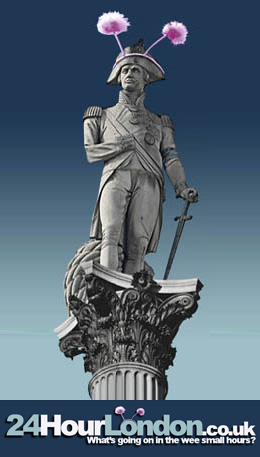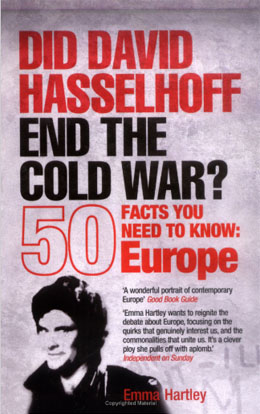I'd recently been told that squeeze boxes were what give English music its distinctive sound and thought I'd try that theory out on John Spiers - of headliners Spiers and Boden, also Bellowhead - who was obligingly forthcoming.
"The piano accordian was the first squeeze box I had: I was 18 and I'd only played the piano before. The right hand is like a sideways piano and it's got the dynamic of bellows, which I love because you can swell a note - obviously you can't do that with a piano.
"The swelling of a single note is one of the essences of English dance music, the noise that sounds like some other kind of music going backwards. It makes people spring their legs and jump off the ground. There's a lot of jumping in English dancing," he mused, as my shorthand picked up speed and my beer buzz burned off rapidly. I hadn't been expecting to have this talk. "Only certain instruments encourage that and percussive instruments can't do it at all. I don't have that accordian any more. I sold it to a gypsy."
You're making this up now, aren't you?
"No. Honestly. Whoever sold it to me didn't know what a good instrument it was. I bought it for £40 and sold it for £100. But it was very heavy and when I was 19 someone suggested that because I was mainly playing morris music it was difficult to make it sound right on an accordian and I should get a melodeon instead.
"By this time I'd gone to study genetics at King's in Cambridge, which is a musical college but mainly for its choir. It's a bit snooty. But the head tutor there was a wonderful man called Rob Walloch. I got robbed in the college bar one evening, which was awful. They'd got my coat and my wallet and so many of my things needed replacing anyway.
"But when I'd first started there he'd made a speech about how if there was anything you needed you shouldn't be afraid to ask because the college was so old and there were so many bursaries available for this and that. He said he'd look for loopholes for us. I think there's a bursary for the sweetest smelling boy from Faversham."
It's unclear from my notes whether this is the bursary that John was awarded.
"So I'd been saving up anyway and my jacket was worth about the same as the melodeon I wanted. It was a cheap melodeon.
"I'd been warned about how different they were to play but when I got it back to my room it sounded lovely: much sharper and stronger. I couldn't play it at all because I was used to an instrument whose note stayed the same when you changed the direction of the bellows and the melodeon is diatonic. It's got the action of a harmonica and changes a whole tone: if you're playing a C and you change direction it produces a D.
"It's a very physical instrument: if you want to do a fast run of notes you need to put your back into it. It's the most regular exercise I get but it's nice because you're half dancing while you play. The English melodeon makes you play with a choppy rhythm that's almost impossible to overcome: you have to work within that style.
"The Irish melodeon, on the other hand, has a row of buttons that are the white notes and another that are the black notes - and you don't have to work the bellows in and out so much. When you hear someone like Sharon Shannon playing you get something that is phrased in a very solid and modern way and played to the taste of the musician rather than the action of the instrument."
John also plays the bandoneon (above), which he says was invented to sound a bit like a church organ and exported to Latin America by sailors, where it was taken up by missionaries, then into brothels (not necessarily in that order) eventually becoming the sound of the tango.
And then there's the concertina, which is disconcertingly expensive for such a small instrument. "The average price of a concertina you would hope to get good on is about £2,500. I don't know any young person who can afford one."
I heard later, from someone else, that there's a supply and demand issue: that very few are made these days and there's someone out there who buys them up to drive up the price. I don't know what to make of this.
"I eventually sold that melodeon to my dad - the one Rob Walloch helped me buy. My dad was a morris dancer (with The Ancient Men and the Abingdon Traditional Morris Men) and he'd taken note of the fact that I was playing the squeeze box. I'd been doing lots of busking in the streets of Oxfordshire and playing for ceilidh bands, and I think he'd secretly always wanted to do it. He used to sneak into my bedroom when I wasn't there during university holidays and have a go. Then one day he took it up and I taught him.
"I've also learnt how to fix them. The first time I ever noticed something had gone wrong was when a note just carried on after I'd stopped playing. I was playing all the time and couldn't send it to London to get fixed, so my mending was trial and error. When I found the offending spring I managed to flick another one out of the bay window and into a hedge by accident. I mended the broken spring with a rubber band and a drawing pin and then it took me about an hour and a half of feeling every bit of leaf under the hedge to find the one I'd lost. It was about one and a half inches and made of thin black wire.
"I learnt much more about my craft when I went to work at The Music Room - an instrument shop - after university. I was forced to leave the job in the end because I'd been being playing with Jon (Boden) and we went on tour to Australia for three weeks. In those five years I think I had a go on every single model and sold about 1,000 squeeze boxes to people, many of whom I still see on the folk scene. I also started a website called Melodeon.net which is still going."
I probably should have asked him what he did for a coat if he spent the money on a melodeon...
* If you like Bellowhead you may also be interested in this interview with Pete Flood, Bellowhead's percussionist.
* If you'd like to buy a copy of Spiers and Boden's ten year anniversary compilation album The Works there are links to lots of places you can compare prices here.
* If you'd like to receive posts from this blog directly into your Facebook news feed you could *like* its Facebook page. Or follow me on Twitter @emma1hartley








No comments:
Post a Comment